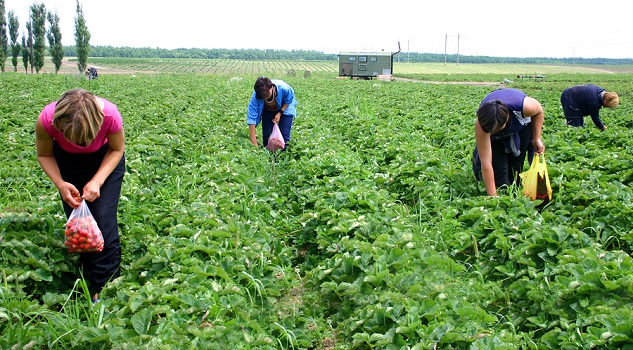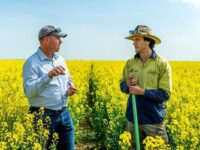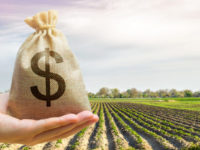Australian farmers are looking at a third straight year of strong commodity prices and intend to spend up big this year, according to the latest Rabobank Rural Confidence Survey.
The report reveals that 31 per cent of farmers expect agribusiness conditions to improve, down slightly on the 35 per cent with that view last quarter. Over half expect a continuation of last year’s very good business conditions, while 14 per cent expect a decline.
It also noted that high prices across key agricultural sectors have been sustaining rural confidence, with farm sector business investment plans continuing to sit at high levels, despite sentiment easing slightly since late last year.
Rabobank Australia CEO Peter Knoblanche said consistently-high commodity prices over the past three years had put the nation’s farmers in a very strong position, even in the face of some immensely-challenging seasonal conditions and natural disasters in some regions.
“Australian farm businesses are overwhelmingly optimistic about the long-term fundamentals underpinning agriculture,” Knoblanche said. “Low-interest rates and continued strength in our markets are helping farmers create opportunities for growth and expansion which is driving greater productivity across the sector.”
Despite the confidence expressed by many, almost two-thirds of farmers predict a deterioration in business conditions attributed that view to rising inputs. It’s also important to note that the long-term impact of the recent flooding disaster along Australia’s east coast – particularly in southern Queensland and the New South Wales Northern Rivers – was not factored into these results, so the present findings might no longer apply in a future study.
Knoblanche noted the regions in southern Queensland northern NSW affected by the recent flooding disaster had been some of the most optimistic in the recent survey, and the full extent of the damage to agriculture was still unclear.
“The flooding and extreme rainfall have had major impacts on many agricultural producers in these regions,” Knoblanche said. “In addition, agricultural freight and logistics networks were significantly affected and may remain impacted for some months. The full extent of the damage is still not yet known and, for many in these regions, it may take a number of seasons to recover.”
Knoblanche added that Rabobank analysts were closely monitoring the impact of the Russia-Ukraine conflict on markets and supply of key agricultural inputs – particularly for urea and potash – with any rise in input prices likely to weigh further on farmer sentiment.
“The worst impacts of the geopolitical situation on food security – in terms of availability and food price inflation – are sadly most likely to affect those in the poorest nations of the world,” Knoblanche said. “Based on the current production outlook, it is pleasing that Australia should be in a good position to contribute well in providing exports to help with global supply.”
Income expectations of Australian farmers remained at healthy levels, with 41 per cent forecasting their farm incomes to increase this year, while 42 per cent expect incomes to stay the same and 15 per cent expect a decrease.
The survey also found 40 per cent of the country’s farmers intend to increase investment in their farm businesses over the coming year, particularly in new machinery and equipment, while more are looking to invest in new technology this year.
Knoblanche said farmers were well placed to maximise opportunities that boost their businesses and productivity which, in turn, should help build resilience within the sector.















